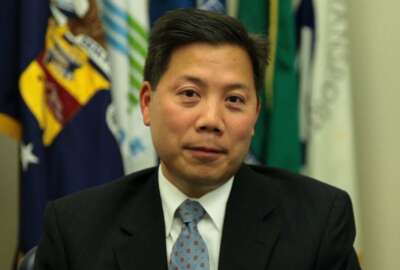The upcoming presidential transition will bring thousands of new faces to top leadership positions, but they might find federal ethics rules to be more stringent than what they’ve seen in the private sector.
The Office of Government Ethics plays a huge role in onboarding political appointees nominated by the next president and prepares them for the Senate confirmation process. OGE Director Walter Schaub told the Federal Drive with Tom Temin that his agency serves as the first major hurdle most nominees face before holding office.
“We’re fortunate in that sense that their first encounter with government culture is with ethics officials who are there to teach them that the rules are really a lot more strict in the federal government than in the private sector, and things that they’ve been allowed to do before they came to government, like accepting gifts or lunches or trips, are not going to be acceptable in the federal government in their new positions,” Schaub said.
When it comes to frequently asked questions, Schaub said incoming presidential appointees often express dismay when they find certain financial interests are incompatible with the government position they’re seeking.
“This can be a bitter pill to swallow, and in fact, coming into the federal government to engage in public service at a high level really is a significant sacrifice.”
Of the nearly 4,000 political appointees that the next president will nominate to hold agency leadership positions, more than a quarter of them require Senate confirmation. In many cases, Schaub has advised appointees to sell off certain assets or step down from board positions in order to avoid a conflict of interest.
On the other end of the revolving door, OGE also counsels current agency officeholders on seeking employment once they’ve left government. While job hunting, Schaub said government officials need to recuse themselves from any work involving a prospective employer.
“In most cases, the rules don’t prohibit going to work for certain employers, but they do prohibit representations back to the federal government, because the goal is to prevent them from leveraging their contacts in the federal government to gain disproportionate influence as compared to someone who had not been in the government,” he said.
OGE is a small independent agency of only about 80 employees, but much of the ethics counseling process gets delegated to agency ethics officials.
“They really have close contact with the employees who need the counseling, and really understand the operations of their agencies, and can give people guidance tailored to the types of things they might have to get involved in at their own agencies.”
The rate of ethics violations among political appointees is very low, Schaub said, but the penalties can involve jail time or large fines.
In order to handle the increased workload around presidential transitions, OGE starts training its workforce two years in advance and begin working with agency ethics officials at least a year before Inauguration Day.
While the ethics rules and training can be a burden on incoming politicals, Schaub said coming into the government comes with significant responsibilities.
“Coming into the federal government to engage in public service at a high level really is a significant sacrifice, and we’re incredibly fortunate that in this country, despite the incredibly burdensome and intrusive nominee process, we continue to find public servants who are willing to come into government, take these high-level positions, learn the rules and comply with them. It comes at no small cost to them.”
Copyright
© 2024 Federal News Network. All rights reserved. This website is not intended for users located within the European Economic Area.

